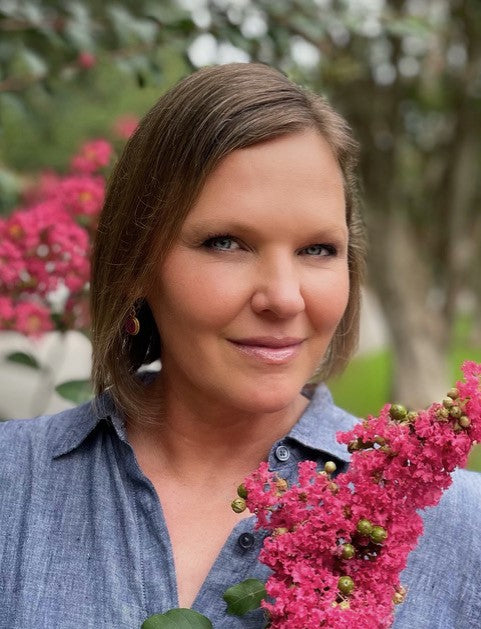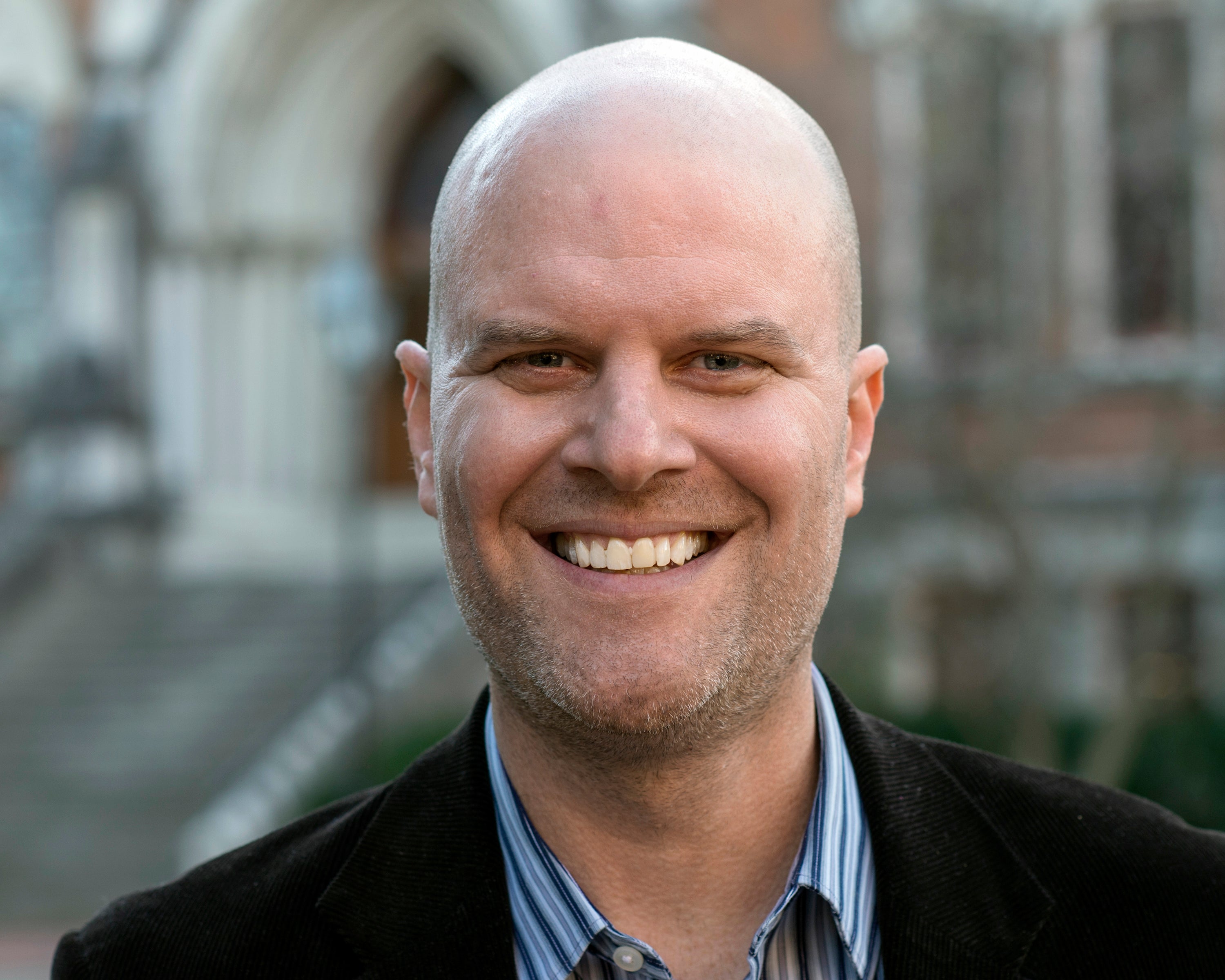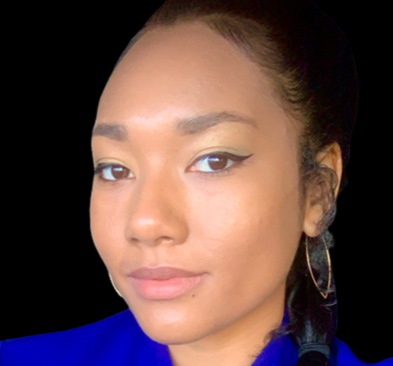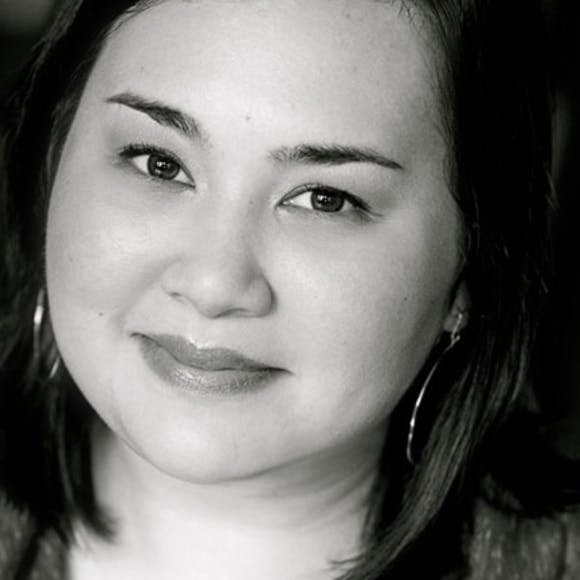Book: Thick: And Other Essays

Photo Courtesy of Emory University LGS
Author: Tressie McMillan Cottom
Author Bio:
1. What does it mean to you to be “unapologetically ‘thick’”?
There are a lot of structures, norms, behaviors, and people who coordinate belief systems that require some people to make themselves smaller to the benefit of other people having space to become larger. And we make these systems in this unequal way.
We do not allocate space to people based on their gifts or their talents or their humanity. We grant space based on what a person has inherited or how much money a person has to spend or how much the person conforms to our idea of who should be in charge of the world. To take up space, for some people that is a very radical thing.
At the same time, it would be really radical for some people who have inherited space that they have not earned to cede space to others would also be very political. It is important to talk about both sides of that dynamic.
2. Your ability to articulate “intersectionality” is admirable, growing up would you have considered yourself to be a critical thinker, or was this developed over time?
I would not have had the language when I was growing up to consider myself a critical thinker, not with the weight I ascribe to “critical thinking” now. However, we valued thinking and education and independent thought and rationality in my home. We are huge readers in my family. And a person cannot be a voracious reader and not have the capacity for unyielding curiosity.
At the foundation of being a critical thinker desire to know the capacity to be curious about not just the world but about other people. And to be curious in a way that respects other people's humanity. Because we were readers, I was predisposed to critical thinking. But, like any other capacity, I had to develop it and continue to have to develop.
As your life changes, there will be new sets of circumstances designed to limit your freedom, your time, or your curiosity and will therefore negatively impact your critical thinking skills. Thus, it is a lifelong challenge to resist those things that would pull me away from being a critical thinker.
3. What made you feel that THICK was a book that needed to be written?
I believe it's the Toni Morrison quote that goes, “write the book that you want to read.” I would like to think that that is what I set out to do when I started writing THICK. But I can't say that with 100% certainty. I don't know if I thought the book needed to be written as much as the book demanded that I write it. A lot of things aligned to make this book possible.
In many ways, those things dragged me along through the process. This was a book that wanted to be written. It wanted to be written at this time. I was having a conversation with the book that wanted to exist and that I was not always certain it could exist or should exist at this point in time.
But the book was able to be written because I had come to a place both personally and professionally where I trust that voice that called to me to write this book. Had the call happened five years earlier, THICK never would have been written. I hadn't yet learned to trust that voice. But the time met the person and the book that wanted to be written! If we are faithful to our voice and our talents, that happens.
4. It has been stated that “this book is essential for anyone who wants to think deeply about race, feminism, and culture.” Was this a goal of yours when you first started to write ‘THICK’?
I do not write with an imagined audience in mind. Therefore, I did not have this idea that this book would become essential for anyone in particular because I wasn't thinking about anyone in particular. I don't think about the audience when I'm writing. I think about the audience when I'm editing. Certainly, the machine that publishes a book will think about the audience when it is time to market and promote the book.
But when I am writing I am in a conversation with ideas with stories and with data and with narratives. I am faithful to those conceits so that I don't confuse my voice with the voice that an imagined reader wants from me. I want to have the capacity to surprise both myself and a reader. To do that, I have to put aside what the reader might want because I respect the reader so much I would try to give it to them.
I have to stay loyal to my ultimate desire, which is to be authentic. I am thrilled that so many people feel that way about this book. Not a day has gone by since THICK’s release -- not a single day truly -- that I have not gotten a letter from someone somewhere for whom this book has become important and essential. That is more than I could have ever hoped for the work.
5. Coming off of the success of “Lower Ed” did you feel any added pressure while writing THICK?
‘Lower Ed’ was a higher stakes professional project. Because it was my first book the book was based on my academic research and my dissertation work. And I have been writing in the short form essay an opinion editorial format for so many publications for so many years, at that point, that the book felt like a necessary bookend to that writing.
And I absolutely felt the pressure to prove that I had something more to say than could be communicated in five 500 to 750 words. So ‘Lower Ed’ the stakes were quite high for me professionally. With ‘THICK’ the stakes were high but they were personal. This is not a book that I needed to write for my professional success. It was not a book I needed to write to keep my job for instance.
This was a book I was writing because it was going to cement for me, who I was going to be as a person, as a thinker, and as a writer. And so for that reason, there was a lot of pressure most of it that I placed on myself to get the book right and to make sure the book warranted the risk I felt I was taking and having written it.
6. How are you able to pull out such visceral emotion in your readers through your writing?
Well, I'm smiling first of all because it's lovely to hear the people think that is what I do. There is no substitute for me in writing for the process of feeling what I am feeling. That's part of the reason why I cannot imagine my audience. I like many girls, particularly black girls and black girls of a certain age who are from a certain place, I was trained to put other people's feelings before my own.
I was socialized and trained and expected to subvert my own needs and desires and wants for what would make other people comfortable. So for me to feel my emotions authentically I have to assume that they are not imposing upon anyone else.
So to write that way I have to isolate myself to a certain extent, to give myself permission to feel my own emotions. Because I have to feel them to articulate them. And so I suspect that it's connected with what I think readers always connect, with which is an authentic experience authentically written.
On the more technical side, I always believed in grounding really big ideas and big concepts and tangible placeholders as I call them when I'm writing. It’s just that the process of grounding your narrative in something concrete and tangible. And I think that resonates with readers.
7. What was your favorite essay to write and why?
Well, this is going to be difficult to say. All right I'm going to cheat and I'm going to give you two. The first is the "Price of Beauty". That is an essay that I didn't even know I had been writing my whole life. Until I started writing it.
I had apparently been writing that essay since I read, “The Bluest Eye” when I was about 11 or 12 years old. And I have been having this conversation with myself for a very long time. Because once I sat down with a question which is, "why is everybody so mad about this other thing I had written previously?", it was as if the essay had been waiting there for me my whole life. And I just had to catch up with it.
I mean there were times when that essay was coming faster than I could type it. And I remember my wrist hurting because I couldn't type it fast enough to keep up with the story coming to me. So that essay is a favor for how it came together and for that in a spiritual place that I got you where it was clear that it was just being sort of channel through me. Some people call that flow, I call it spirit, whatever it is, I was in it and that's always an existential treat.
The second one I’d say that was fun for an entirely different reason, is the closing essay, "Girls 7". That was fun because I was deliberate in choosing a voice and a style for the type of argument that I wanted to have. It is a Metacritic of the idea of legitimacy that is couched in a sarcastic engagement with a Prestige Legacy Media and op-ed writers. And I really gave myself permission there to lean into being a smartass. So that one was sort of cathartic and therefore enjoyable to write.
8. How has society, more specifically American society, attempted to box you in or hold you back personally?
It would be easier to answer this question of how hasn't American society attempted to box me in or hold me back personally. It would be easier because it would be blank. You know the great story of Oppression in our society is that it is unrelenting and never-ending. An all-consuming and yet somehow we, my people, all over the world somehow managed to not just survive but to thrive.
That is the great story of human society and I believe in the human nature of which black people are full citizens. So how has the American society has attempted to hold me back? By precluding the very idea of me existing.
I'm not supposed to exist in this form, in this body, in this space, with these talents on this stage, with that audience. I'm not supposed to exist except for the convenience of other people who do not look like me. But the great joy of my life is that I exist anyway and maybe this goes back to your first question which is what does it mean to be unapologetically thick? That's what it means.
As Lucille Clifton says, “come celebrate with me that everyday something has tried to kill me and yet has failed”.
9. The book cover of THICK has an abnormally elongated “H”. What made you design it this way and does it have a deeper symbolism?
The cover is a brilliant symbolic representation of the ethos and spirit of the text. It was designed by Oliver Munday. And it's absolutely brilliant. The moment I saw the first draft of that design I actually wept.
You see there is the obvious symbolism of the H itself being thick of course. But there is also something about how thick, the word, takes up so much space on the cover. It leaves a sort of negative space on the rest of the cover. I feel like it is a way to invite the reader to project onto the text their own experiences of culture and race and gender and class that the book introduces them to through my lens.
So the entire cover I thought just really captured what I wanted this text to be, which was somehow both personal and global. This is a difficult thing to achieve and I can't say definitively that I achieve it with the text. But the cover definitely does.
10. Novelist James Baldwin famously proclaimed that “to be a Negro in this country and to be relatively conscious is to be in a rage almost all the time.” Do you agree?
Do I agree? Are you going to get a Black writer in the 21st century to disagree with Baldwin? I don't know many people who are bold enough to do that. I will say this. I did an interview promoting the book where the interviewer, a very lovely man, imposed upon the final draft of the interview. He wanted the Baldwin allusion at the beginning of the interview because he believed it said something about me, despite being in a rage, I managed to write to be a public thinker and I asked them to change it because there is something about the claim of 'Rage' that does something particular, it is superimposed onto the Black American female body and life.
And I don't want anybody saying that I am in rage unless I tell them that, 'I am enraged'. Whether or not I'm in a conscious state of rage all of the time, you don't get to assume that I am in a rage all of the time. And there's a sort of reclamation of my agency that I wanted to do in that turn of phrase.
So you know God bless the Patron Saint James Baldwin but I'm actually not in a rage almost all of the time, but I am always angry. I do think the difference is that anger is something over which I have developed control and dominion. And rage feels as if it would take away my minion over my own internal life. The thing about being a black girl is that all we ever own in this world is our own little internal lives. It's the only thing that we get free and clear. And I am simply not willing to turn that over to the whims of white people or two men. Go to h***!
11. What’s the best book you’ve read so far in 2020?
The first is a book by Shayla Lawson. The book is, "This Is Major: Notes on Diana Ross, Dark Girls, and Being Dope". It's a wonderful essay collection that continues what I think it is the elevation of the essay form as it relates especially to race and gender and class that has been happening over the last five or six years.
I absolutely think that the book has the legs to be one of those books that pulls an audience and forces them to engage with ideas about things they thought they already knew what they felt and thought about that thing. And more importantly, I think Shayla introduces additional complexity to the nearest of black girlhood and black Womanhood which I'm all about these days.
We are complex, multi-layered, and have the fullness of humanity within us and our literature, and our creative works absolutely should reflect that. It's been one of the most enjoyable books I've read so far in 2020.
12. Do you plan on writing more books in the future?
I will be writing books until the day I die. The question is whether or not they'll be published and whether or not the readers will be there, but I have always said that those things are beyond my control. What is squarely within my control is doing the very best I can with the things that I have been gifted with. I would consider it a rejection of everything that the good Lord has put into me, for me not to be writing until the day that I die. So I'll keep writing some of those books and I can only hope that the rest of the world will be there waiting to receive them.
Other Places To Find More From This Author:
Instagram: @tressiemcphd
Twitter: @tressiemcphd
Facebook: Tressie Mcmillan Cottom
Website: tressiemc.com
Get Your Copy of Thick: And Other Essays Today!







